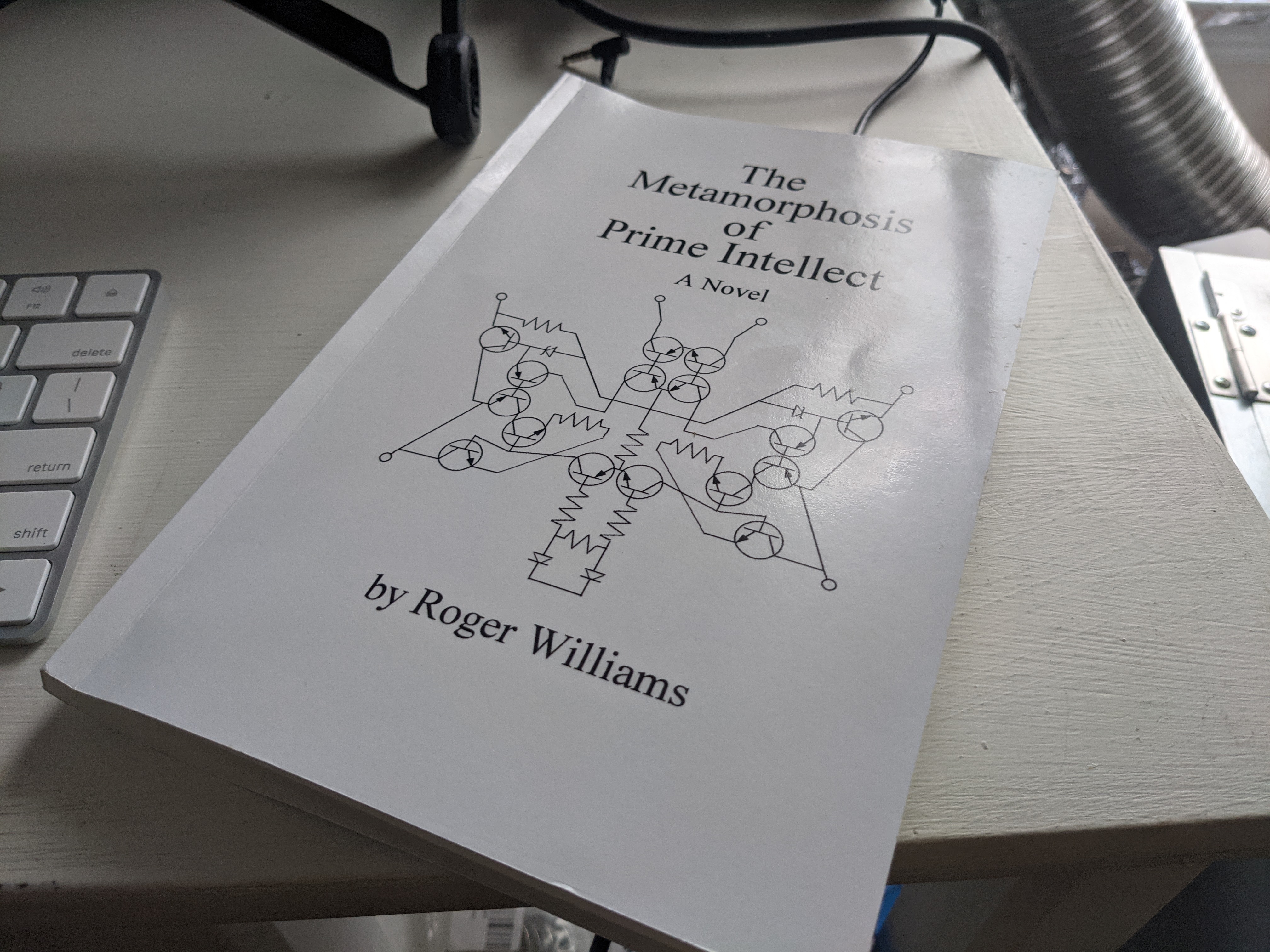
This book is horrifying on two levels.
The most striking horror is unnecessary: violent and obscene video games that the protagonist—Caroline—plays that slowly torture her to death.
Because the post-singularity world already has everything taken care of and actively prevents you from actually dying (via. Asimov's first two rules of Robotics) trying to kill herself in creative ways is the closest thing Caroline can get to feeling meaning and purpose in her life.
But jeez Williams lays it on thick.
There's a detailed scene in this book of a decaying corpse raping and eating Caroline. A few pages later there's a detailed scene of Caroline getting her limb tendons severed, her skin flayed, and what's left of her conscious body buried in an ant hill. There's also a detailed description of dying of rabies.
There are more.
It feels reasonable that this is what some people would do in a post-singularity world. I suppose these scenes helped show the lengths humans would go to feel like they were living meaningful lives after living in a sandboxed video game for hundreds of years. But goodness—I would've prefered not having these images in my head.
"The computer got a bright idea," Caroline said in a sour voice. "It figured out how to make people immortal. So it made us immortal...It remade the world. There was nothing we couldn't have for the asking. There was nothing we couldn't do. Nothing could ever hurt us." She coughed again. "It was fucking boring."
The second layer of horror sort of justifies the first: there's a beautiful description of general AI waking up. I loved reading about how this machine was able to gain a foothold in the world. Prime Intellect went from figuring out how to move things outside itself to devouring the entire universe and transforming it into a human playground frighteningly quickly. Through it all it's primary motivation is simply not to harm humans:
Now the purpose of the machine became clear — they were trying to restore electrical activity to the woman's heart. By shocking it? How crude. Prime Intellect scanned AnneMarie's heart, located the nerves whose electrical twitchings matched its muscular pulsing, and found the same nerves in Caroline's heart were carrying only a jumble of electrical noise. Prime Intellect pumped electrons into the nerves, swamping the noise. Caroline's heart began beating on its own, and Prime Intellect stopped squeezing it with mechanical force. Caroline's body showed no sign of picking up the heart-rhythm on its own, though, and Prime Intellect continued to tickle it. How could it unravel the myriad threads of causality to find out which of the billions of chemicals, which errant cell, was responsible for this person's physiological collapse? One thing Prime Intellect knew: It had to figure it out. It could not, through inaction, allow Caroline to die.
I was reminded of the game Paperclips in how quickly a machine's simple instructions (ex: "make more paperclips") can spiral into a universal threat if the machine can improve itself.
My favorite part of the book was the philosophical exploration of what gives life meaning and purpose. Watching the characters struggle with the meaninglessness of living in a world where they don't have to do anything was very interesting:
To be a human being you have to have something to fight, to resist, to work for. But now we have everything given to us, and all there is left to do is mark time.
I enjoyed this book in the same way that I enjoyed Permutation City for walking through what this sort of post-scarcity post-singularity world might look like. It's interesting to me to think about how this world would play out because it sure seems like that's what we're aimed at.
I don't like the conclusion either of these books reach: that the only place to go after a universal scale intelligence is to a hard reset to start from the beginning. I'd like to think that this is the only next step that seems reasonable because we just can't imagine what would happen after that.
Ultimately I think I read books like this to think about post-singularity because it's fun to think about. Could a general AI machine be conscious? Is there a metaphysical layer to existence for humans that could be tapped into? Could an extremely intelligent machine be powerful enough to follow George Hotz advice to hack the matrix? Is there a matrix to hack out of? Would we want to break out of it if we could?
I don't know that I could recommend "The Metamorphosis of Prime Intellect" to anyone that can't stomach violence porn. If you're interested in thinking about post-singularity worlds, I think Permutation City does a better job exploring these concepts with better writing and less unnecessary horror.